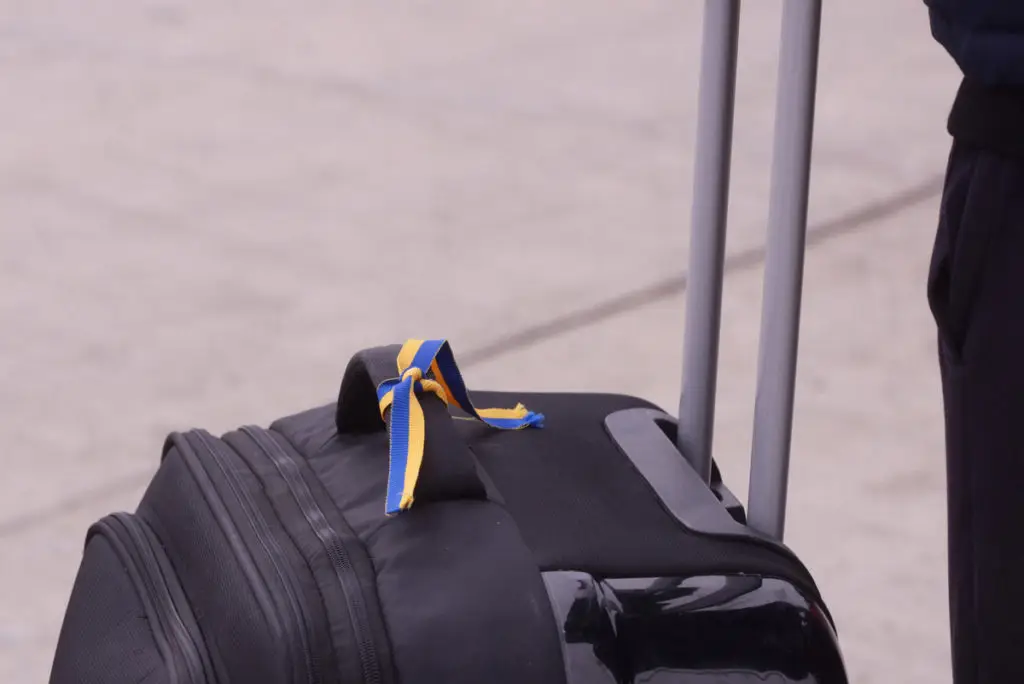Arkansas Baptist Disaster Relief (ABDR) volunteers stand ready to offer “help, healing and hope” to those impacted by disasters. Through the years, these faithful servants have ministered to disaster survivors not only throughout Arkansas, but in such faraway places as Texas, Louisiana, Florida and even New York. Whenever and wherever, there are needs, that is where you will find the “yellow shirts” from Arkansas.
Recent events in Ukraine have provided a unique opportunity for ABDR to expand its ministry all the way to Bucharest, Romania. The Russian invasion of Ukraine has created the largest movement of people in Europe since World War II as more than 3.5 million Ukrainians have sought safety in bordering nations. This unprecedented event has led AR DR to partner with the IMB, Southern Baptist Disaster Relief international crisis response efforts (SEND Relief), and local Romanian Baptist pastors to minister to refugees in the country of Romania where almost 600,000 Ukrainians have fled.
The first team from Arkansas left for Bucharest on April 2 to begin a two-week term of service. Mike Grober from The Church at Rock Creek in Little Rock was tasked with leading the team. Grober has served with AR DR since Hurricane Katrina in various leadership roles including as a blue cap and incident commander. He currently serves as founder and Executive Director of Your Mission Matters where he leads small mission teams to be on mission in South America, primarily in Peru and parts of the Amazon.
Grober was at the airport in Lima, Peru when he received a phone call from the Director of AR Disaster Relief Randy Garrett asking if he would be interested in leading the team. “I had been praying for and given money to help the refugees. But I knew I had to do something more,” Grober said. “I didn’t know what that was, but when I was in Peru and Randy called me, it was an answer to my prayers. If it wasn’t for AR Disaster Relief. I would still be sitting there asking that question. If I wasn’t a part of DR and Randy had not contacted me, I would still be trying to figure out what to do.”
Grober had to rearrange his schedule, but he says that is something he’s come to expect as a DR volunteer. He said that he tries to position himself so that when these unexpected events take place, he can say yes. He does this in various ways like saving vacation days or not using all his time off. He calls this “creating space.” “I try to live my life leaving space so He can use me in unexpected ways,” Grober said.
Grober noted that one of the key things everyone learns as a DR volunteer is to be fluid. He says that even with all of the planning that’s done, 9 times out of 10 things are not going to go as planned. He’s expecting this to be the case on this trip as well. Rather than getting discouraged, Grober instead sees this as a chance for God to reveal Himself in unexpected ways. “It’s a liberating feeling to know that you don’t have all of the answers, and you don’t have to have the answers,” he said. “When this happens, we begin to step into experiences of ministry that we might not be completely qualified for, so we have to radically depend on God for this to work.”
When asked why he thought DR volunteers were chosen to serve on this project, Grober said it’s because they are trained to serve. He says they are trained to come alongside on site with churches and other organizations and encourage them and walk beside them. “We know that we are not the knight in shining armor. That’s not how it works,” Grober said. It is important for the people they serve to know that they are loved, and they are not alone. “We’re here to do whatever they want us to do. We have no agenda, we’re just here to help.”
This partnership with so many different groups coming together to serve is a perfect example of cooperative missions at work. While many other groups were scrambling around trying to figure out how they could serve, Southern Baptists already had the foundation in place. Because of Cooperative Program giving, missionaries were already on the ground serving in Romania. Baptist pastors were already in place who knew and loved the people and understood the culture. Teams from the North American and International Mission Boards were already working together in partnership with state conventions.
Grober is grateful for the Cooperative Program. “It’s huge. You don’t have to reinvent the wheel. Resources and people are already in place. They understand the context. When we show up, we submit ourselves to the insight and experience of the local church,” he said. “When we leave, the work doesn’t stop. That is so vital. There is another team coming in, but ultimately the Romanian Baptist church will carry this on. We’ve made a small contribution to something that will have a lasting effect.”
Arkansas Baptists are encouraged to pray for the volunteers as they serve Ukrainian refugees in Romania. Grober is grateful to all Arkansas Baptists for their support and prayers and wants everyone to know that he is honored to serve as your representative. “You are basically sending us. That’s a huge responsibility. We know we represent Arkansas Baptists in how we share Christ. We recognize that we are part of something way bigger than ourselves.”

